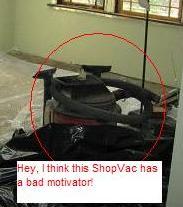A few emails in reaction to my Grokster piece, both pointing me to more detailed responses elsewhere. David Goldenberg writes, “Thought you might enjoy this most recent interview with Mark Cuban over at Gelf Magazine…”:
At first glance, it would seem that the Supreme Court has dealt Mark Cuban, who helped fund Grokster’s legal team, a pretty severe blow. But Cuban says the Supreme Court focused on how the technology was marketed, and not the technology itself, and thinks that the ruling will stem any moves by Congress toward passing laws that could potentially be even more restrictive of technology….
Gelf Magazine: Is this a major victory for the entertainment and recording industries?
Mark Cuban: No. It’s a major victory for lawyers everywhere.
And according to Business Week’s interview with Larry Lessig, the famed intellectual property specialist is in agreement:
Q: Why do you think the Supreme Court decided to take on this case rather than letting the issues get decided in Congress?
A: Increasingly, this court is oblivious to the costs of its own decisions. The Reagan Administration pushed the regulatory-impact statements. I think we need an equivalent Ronald Reagan to push the judicial-opinion-impact statement that tries to calculate the efficiency costs of certain legal rules. I continue to be disappointed in Justice Souter’s obtuseness to the costs of the complexity that he adds to the copyright system….
Q: So the problem with the decision is just that the Supreme Court rendered an opinion at all, rather than letting legislators decide?
A: Right. By making it a process that goes through the courts, you’ve just increased the legal uncertainty around innovation substantially and created great opportunities to defeat legitimate competition. You’ve shifted an enormous amount of power to those who oppose new types of competitive technologies. Even if in the end, you as the innovator are right, you still spent your money on lawyers instead of on marketing or a new technology.
In Congress, we might have a lot of argument about what the statute should look like. But that would be a process that would resolve this intensely political issue politically. Instead, Justice Souter engages in common-law lawmaking, which is basically judges making up the law they want to apply to this particular case. And not just Supreme Court judges—what they’ve done is invite a wide range of common-law lawmaking by judges around the country trying to work out the details of what this intent standard really is.
Thanks to Rob Hof, Business Week’s Silicon Valley bureau chief, for the tip about the interview (also see the comments thread on his BW blog post). I kept waiting for Lessig’s comment to appear on his blog, and I’m still waiting; this confirms my suspicions that the so called “inducement test” from the ruling is anything but a bright line.


